As we arrived at the office of Yayasan Planet Indonesia (YPI) in Pontianak, West Kalimantan, we were greeted by big smiles on the faces of their team, and warm words from Novia, their director.
“We are delighted to be the host partner in this exchange, and to be able to share our conservation approach. This is something we’re proud to be a part of, and I know we can learn from and support each other.”
By joining a conservation cooperative, community members gain access to support and services in health, literacy, business and finance, as well as natural resource management.
This exchange was between YPI and Forkani, another community-based organisation from Wakatobi, Sulawesi, and I was there to facilitate the exchange as Blue Ventures’ partner support technician. My speciality is health-environment approaches to marine resource management, which is something that all of our partner organisations have in common!
For the last two years, YPI has been supporting community-led management of the mud crab fishery and mangrove forests in West Kalimantan using a holistic approach called conservation cooperatives. By joining a cooperative, community members gain access to support and services in health, literacy, business and finance, as well as support with their natural resource management.
Meanwhile Forkani has been integrating community health work with octopus fishery management in Sulawesi, and their team has expressed interest in expanding into mud crab and mangrove management. That’s where the idea for this exchange was born! It was a real pleasure on our first day in West Kalimantan to see Hasanuddin, Nusi and Yanti, the three Forkani team members, proudly presenting their work, and making connections and sharing jokes with the YPI team.
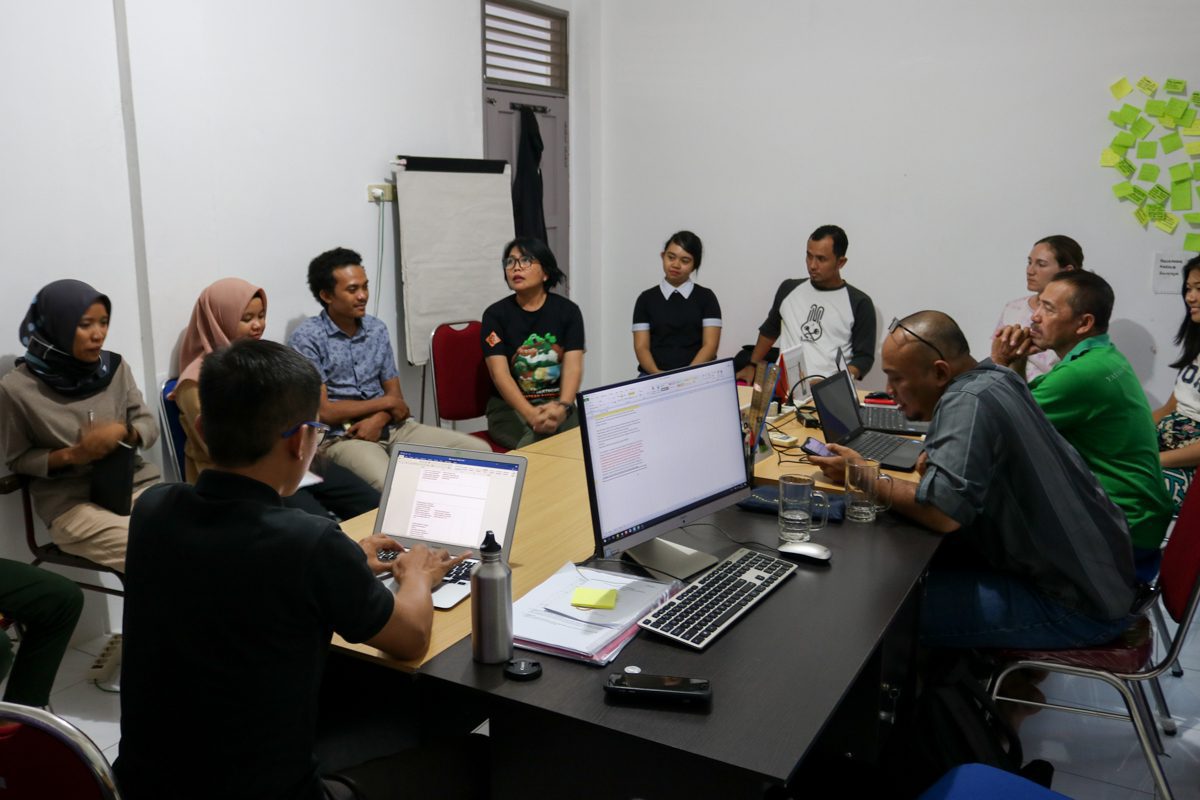
YPI welcoming us to their office in Pontiak
The next day we drove to the banks of the Kapuas River, and took a two-hour boat ride through extensive mangrove forests to reach the village of Sungai Nibung. Nestled amongst the trees and raised up on stilts above the tidal waters, this remarkable village is also home to a long-established community partnership with YPI.
At an open meeting space, complete with local coffee and traditional cakes, we spent time connecting with the fishers, families and local authorities that YPI works with, hearing them share their different hopes and stories about natural resource management.
The community were enthusiastic about their temporary crab fishery closures, which they implement on a rotational basis in different areas of the mangrove forest. The general opinion was that they have contributed to a tangible increase in total crab catch, and are a valued initiative from the village and the community cooperative.
I welcome this kind of exchange because this means we are supporting each other in our dream of sustainable natural resource management, particularly on mud crab management which we want to be recognised nationally or even internationally.” – Syarif Ibrahim, head of Sungai Nibung village.
We were also excited to learn more about the benefits of being part of the Sungai Nibung community cooperative:
We have a saving system in our cooperative that really helps the community when they can’t go fishing due to terrible weather. Instead of borrowing money from the bank or other sources with high interest rates to fulfill their daily or urgent needs, they can use their cooperative savings.” – Tahir, head of the Sungai Nibung cooperative
In partnership with local Puskesmas (state-run community health centres), YPI has also trained 23 women to provide health support to members of the cooperative, and who can respond quickly in an emergency situation. The Forkani team members found this very interesting, as they’ve been wanting to strengthen their relationship with the Puskesmas in their project areas. Although the contexts are different, the need for basic health care is consistent across most coastal communities.
By addressing basic community needs in a holistic way, YPI has gained respect and trust in Sungai Nibung. The appreciation of the financial, literacy and health benefits of the cooperative has been a gateway to increased community engagement in YPI’s conservation programmes, and an understanding that they are also contributing to community wellbeing.
The success of YPI’s approach in Sungai Nibung led to interest from the two neighbouring villages of Seruat II and Mengkalang Jambu, and YPI are now working with those communities too.
On the short boat trip through the mangroves to Mengkalang Jambu, Rusli, the co-founder of YPI, explained to us that building a close relationship with the local authorities is crucial to amplifying the impact of the community cooperatives:
“Presence and support from YPI won’t last forever, so we work with local government and institutions from the beginning of our involvement with a community, slowly handing over the systems and management to them, including all data and information that we’ve collected”
We met with the head of Mengkalang Jambu and the head of village legislation in a raised wooden hut by the river, and witnessed firsthand how satisfied they are with YPI’s support.
We are happy with a development programme like this, because the end goal is to improve the long-term well-being and prosperity of our community.” – Darni, head of village legislation in Mengkalang Jambu
It was my first time facilitating an exchange like this, and I was thrilled with how valuable it was for everyone involved. Not only did it provide a great opportunity for the Forkani and YPI teams to learn from each other, but it also confirmed that both organisations share the same vision for the future and that they can work together to achieve it.
Both partners have made promises to keep in touch for further sharing, and I am looking forward to hearing back from them on how the lessons learned from this exchange helped advance their respective programmes.
We are thankful that we can learn and share with YPI, it feels like building up friendships and starting communication without borders. We hope that we can continue sharing and even start collaborating in the future.” – Hasanuddin, Forkani
Read our latest blog series: Women in fisheries management in Indonesia


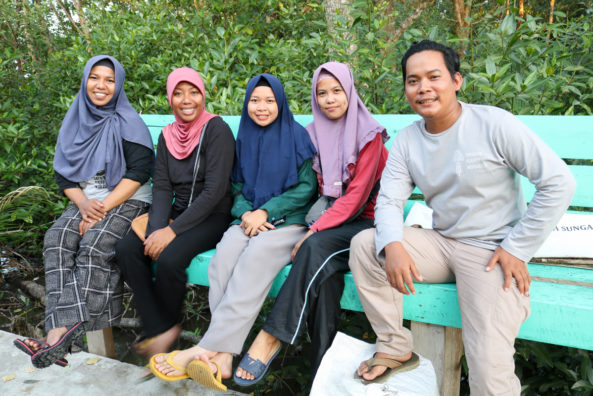
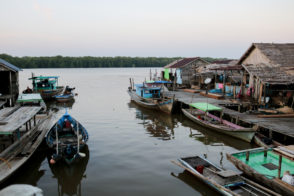
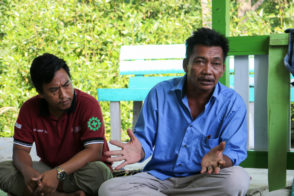
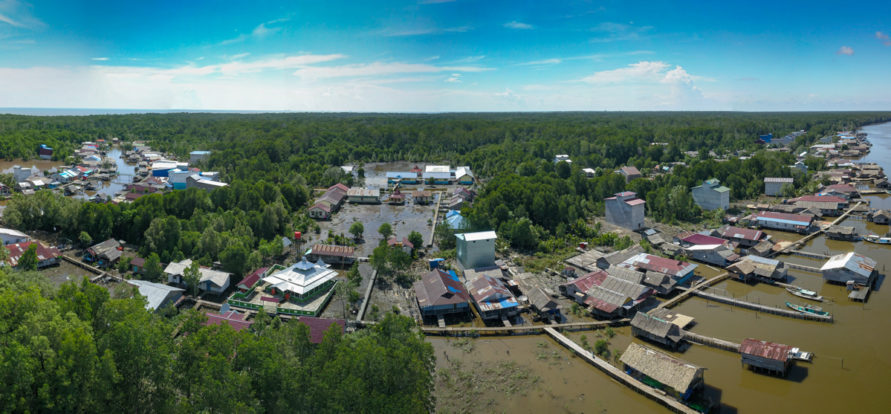
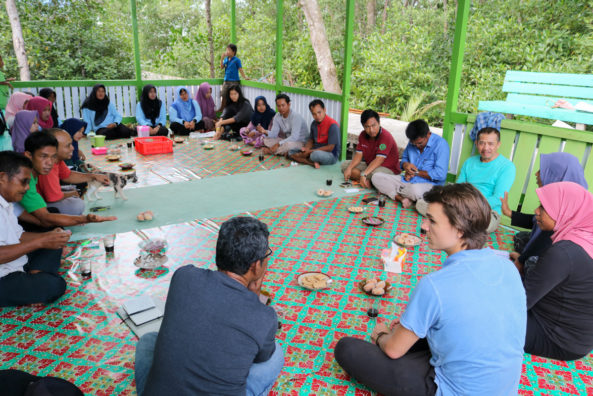
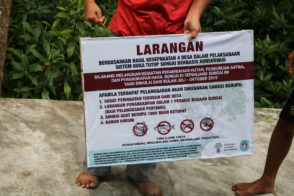
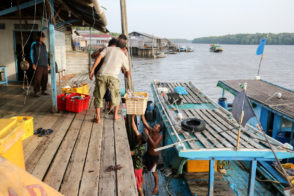
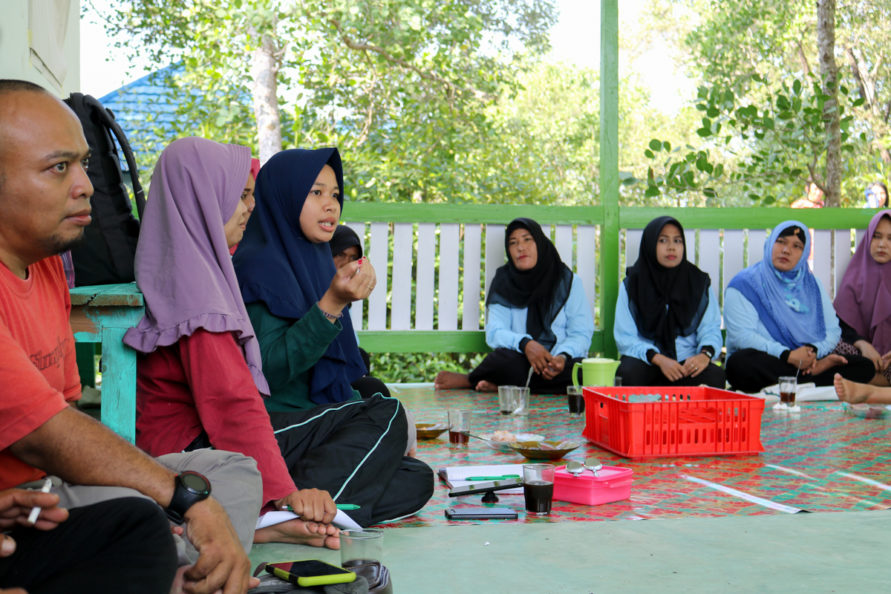
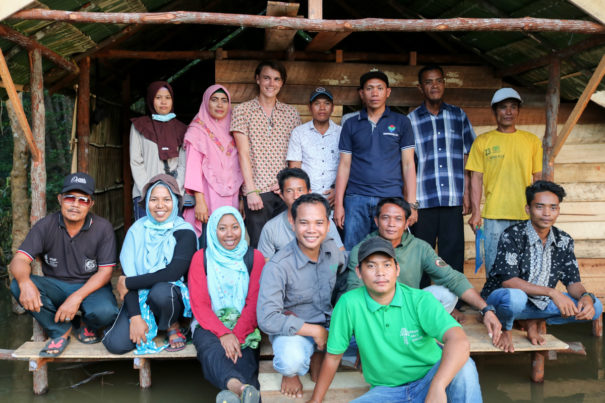
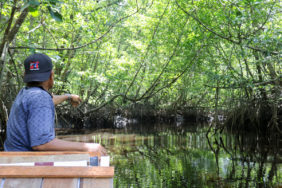
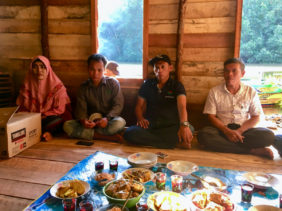
Great to hear how successful this was, and to see that you have facilitated the formation of new alliances!